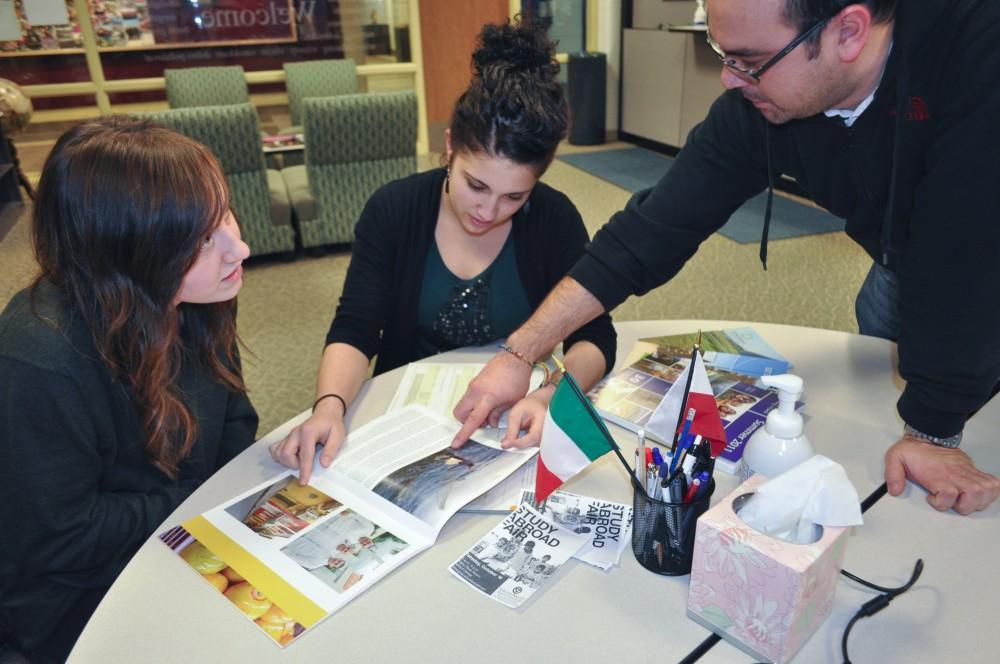Study abroad popularity on the rise at Grand Valley

J. Ortiz-Estevez and Annie Hakim help Maggie Overbeek learn about the study abroad program
Dec 9, 2010
Amid a global financial crisis, rising fuel costs and the depreciating U.S. dollar, it comes as no surprise that there was a decline in the number of American students studying abroad in the 2008-09 academic year.
According to the Institute of International Education, a total of 260,327 students participated in overseas study for academic credit, a 0.8-percent decline from the previous year.
Many colleges and universities struggle to encourage students to go abroad, but despite the hard economic times, Grand Valley State University’s Padnos International Center reported the number of GVSU students studying abroad is the highest it has been since 2001.
The most obvious factor in the decision to study abroad is the economy, said Mark Schaub, executive director of the PIC. Students have found studying abroad can be an affordable experience.
“There are wonderful semester-abroad options that are quite affordable,” Schaub said. “The semester-in-India is a great program that is significantly cheaper than a semester here on the Allendale campus, but many (traditional) destinations costs more than GVSU.”
With the high cost of traditional study abroad locations, like the United Kingdom, Australia and Italy, some students turn toward more unusual or non-traditional locations for their international experience.
Despite the fact that the majority of GVSU students study in traditional locations, China has consistently been the fourth most popular destination for GVSU study abroaders, said Meaghann Myers-Smith, PIC study abroad adviser. The PIC advisers see more and more students study in locations like Egypt, Jordan, India, Thailand and South Korea.
“Although many students find comfort in sticking to the traditional destinations, I think some students may be considering the importance of gaining experience in non-traditional study abroad destinations,” Myers-Smith said. “The top three emerging economies right now are China, India and Brazil – all non-traditional destinations that are extraordinarily important and influential.”
Both Myers-Smith and Schaub stressed the importance of the global perspective that study abroad gives students. Contemporary American students will develop a greater awareness of the diverse parts of the world by studying abroad, experience valuable both in the workplace and to the U.S.
“Having students with a clearer idea of the world and other cultures and the importance of seeing issues from a range of perspectives makes the learning environment better for all,” Schaub said. “Likewise, having more Americans with international experience strengthens out nation, our democracy, because they are more informed citizens.”






















